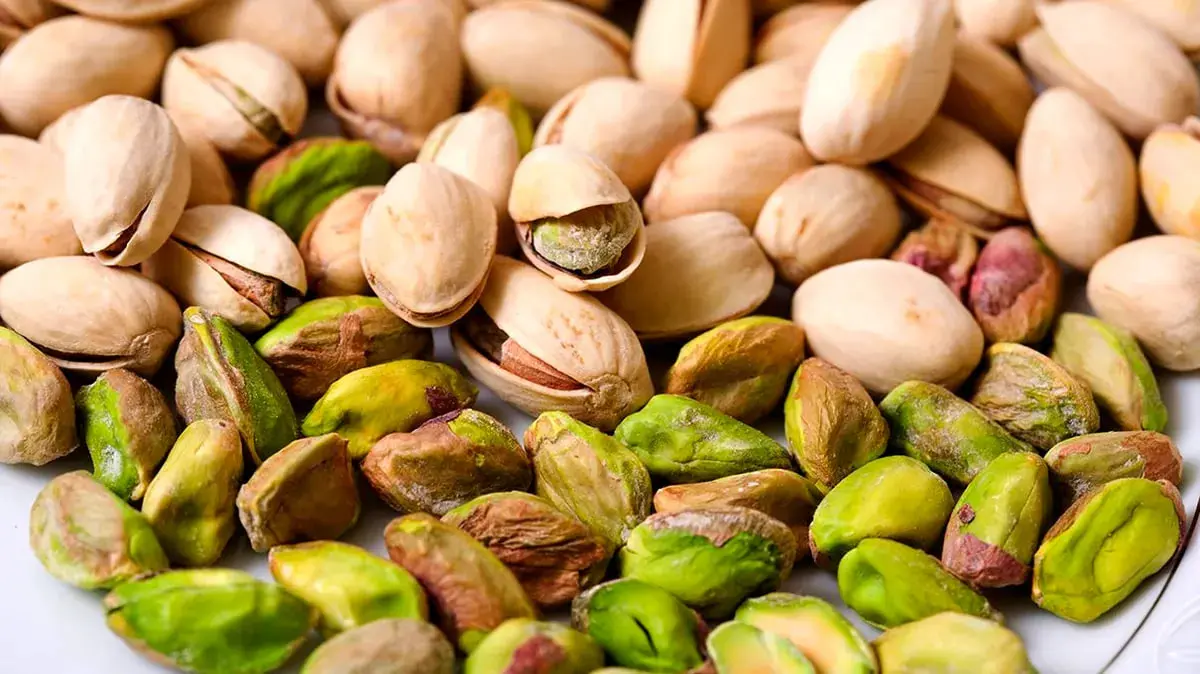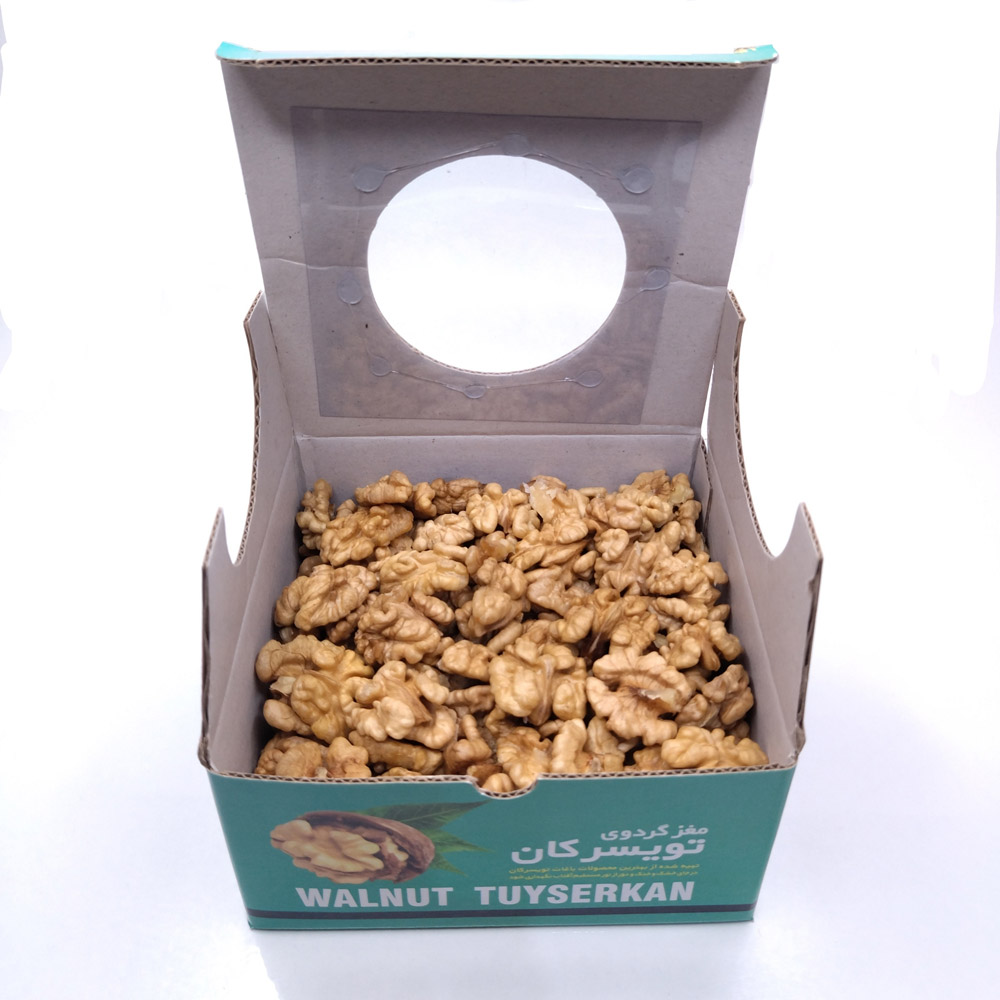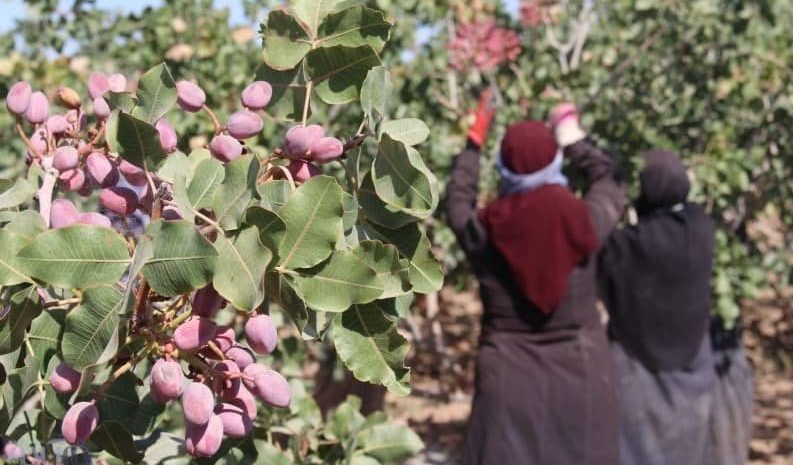
Sustainable Farming Practices for Nuts and Dried Fruits in Iran

Superfoods from Iran: A Closer Look at Nuts and Seeds
Why Consumers Should Look for Organic Labels
In recent years, there has been a significant shift in consumer demand for organic products, and Iran, with its rich agricultural heritage, is increasingly focusing on meeting this demand. Organic certification has become a critical factor for both domestic and international buyers of Iranian products like nuts, dried fruits, saffron, and spices. Organic certification ensures that these products are grown, processed, and handled according to strict environmental and health standards, offering a range of benefits for consumers and producers alike.
Here’s why organic certification is important for Iranian products and why consumers should prioritize products with organic labels.
1. Health Benefits of Organic Products
One of the primary reasons consumers seek out organic products is for their health benefits. Organic certification ensures that products are free from harmful chemicals, synthetic pesticides, and artificial additives, which can pose health risks.
Key Health Benefits:
- No Synthetic Pesticides: Organic products are grown without the use of synthetic pesticides and herbicides, which can leave harmful residues on food. This is especially important for nuts, fruits, and spices, which are often consumed raw or with minimal processing.
- No Genetically Modified Organisms (GMOs): Organic certification guarantees that products are non-GMO, meaning they are grown from natural seeds without genetic modification.
- Higher Nutritional Value: Studies have shown that organic products can contain higher levels of certain nutrients, such as antioxidants, vitamins, and minerals because organic farming practices focus on soil health and plant vitality.
Why It Matters for Consumers:
Choosing organic-certified Iranian products means avoiding potential health risks associated with chemical residues and GMOs. For instance, organically grown pistachios, almonds, or dates offer a purer, more nutrient-dense option for health-conscious consumers.

The Importance of Organic Certification for Iranian Products
2. Environmental Impact and Sustainability
Organic certification also emphasizes environmental sustainability. By supporting organic farming practices, consumers can contribute to the preservation of natural resources, biodiversity, and the reduction of environmental pollution.
Key Environmental Benefits:
- Soil Health: Organic farming practices avoid the use of chemical fertilizers, instead relying on composting, crop rotation, and natural soil enrichment techniques to maintain fertile and healthy soils. This helps prevent soil degradation and erosion, a significant concern in regions like Kerman and Fars where nuts are grown.
- Water Conservation: Organic farming often incorporates water-saving techniques like drip irrigation and rainwater harvesting, reducing the strain on local water resources, which is especially critical in Iran’s semi-arid climate.
- Biodiversity: Organic farms are required to maintain biodiversity, both in terms of plant varieties and wildlife. This promotes a balanced ecosystem that can better resist pests and diseases naturally.
- Reduced Carbon Footprint: Organic farming practices typically result in lower greenhouse gas emissions due to the reduced use of fossil fuel-based inputs like synthetic fertilizers and pesticides.
Why It Matters for Consumers:
By choosing organic Iranian products, consumers help promote farming practices that are environmentally friendly and sustainable. Supporting organic producers means contributing to the preservation of Iran’s agricultural landscapes and ensuring that future generations can continue to enjoy high-quality products.
3. Quality and Taste
For many consumers, the quality and taste of organic products are reason enough to seek out organic labels. Organic farming methods often result in better-tasting and more nutrient-rich products, as crops are grown in healthier soils and allowed to ripen naturally.
Why Organic Tastes Better:
- Healthier Soil, Healthier Plants: Organic farming practices, which focus on enriching soil health through natural methods, lead to more flavorful crops. For example, organic figs, dates, and raisins often have a deeper, more concentrated flavor due to the natural growth process.
- No Artificial Additives: Organic certification prohibits the use of artificial preservatives, flavor enhancers, and sweeteners, ensuring that the natural flavor of the product shines through. This is especially important for saffron, where organic certification guarantees the purity and richness of the spice’s flavor and aroma.
Why It Matters for Consumers:
When consumers purchase organic Iranian products, they can expect higher-quality goods that offer superior taste. Organic nuts, fruits, and spices are often fresher and more flavorful than their conventionally grown counterparts, making them a better choice for discerning food lovers.

The Importance of Organic Certification for Iranian Products
4. Ethical and Social Impact
In addition to health and environmental benefits, organic certification often reflects ethical and social values that many consumers prioritize today. Organic farming is closely aligned with fair trade and community-centered practices, ensuring that local farmers and workers are treated fairly.
Key Ethical Benefits:
- Fair Wages for Farmers: Organic certification often goes hand-in-hand with fair trade principles, ensuring that farmers are paid fairly for their labor and products. In Iran, this is particularly important for small-scale farmers who grow pistachios, almonds, saffron, and other crops.
- Safe Working Conditions: Organic farms avoid the use of harmful chemicals, creating safer working environments for farmers and their families. Workers on organic farms are not exposed to toxic pesticides and herbicides, which can have serious long-term health effects.
- Supporting Small-Scale Farmers: Organic certification provides small-scale farmers with access to premium markets where they can sell their products at higher prices. This supports rural communities and helps preserve traditional farming methods.
Why It Matters for Consumers:
By choosing organic-certified products from Iran, consumers are contributing to the ethical treatment of farmers and workers. This ensures that small-scale farmers can maintain sustainable livelihoods and continue producing high-quality organic nuts and fruits for future generations.
5. Global Market Access and Consumer Confidence
For Iranian producers, obtaining organic certification is becoming increasingly important for global market access. Consumers around the world, particularly in Europe and North America, are demanding organic products more than ever, and organic certification is key to meeting this demand.
Key Benefits for Producers:
- Increased Market Demand: Organic certification opens the doors to export markets that prioritize organic products. This is especially important for Iranian producers of pistachios, saffron, and dried fruits, which are highly sought after in organic markets.
- Consumer Trust: An organic label signals to consumers that the product has been grown and processed according to strict standards. It builds trust and transparency, reassuring buyers that they are purchasing genuine organic products that meet their health and environmental standards.
- Premium Pricing: Organic products often command higher prices, allowing producers to earn more for their efforts. This is a key incentive for Iranian farmers to adopt sustainable and organic farming practices.
Why It Matters for Consumers:
When consumers see the organic label on an Iranian product, they can trust that it meets international organic standards and is free from harmful chemicals. This gives consumers confidence that they are making a responsible and informed purchase, both for their health and the environment.
6. Supporting the Transition to Sustainable Farming
By choosing organic-certified products, consumers play a crucial role in supporting the transition to sustainable agriculture in Iran. As more consumers demand organic products, more farmers are encouraged to adopt eco-friendly and sustainable farming methods.
How Organic Certification Drives Change:
- Incentivizing Sustainable Practices: The growing demand for organic products creates a financial incentive for farmers to adopt organic farming techniques, such as crop rotation, composting, and biological pest control.
- Reducing Environmental Impact: As more farms transition to organic certification, the overall environmental impact of agriculture in Iran is reduced. This helps protect water resources, soil fertility, and biodiversity in key agricultural regions.
- Long-Term Sustainability: Organic certification promotes farming methods that are sustainable in the long term, ensuring that Iran can continue producing its world-famous nuts, dried fruits, and saffron without depleting natural resources.
Why It Matters for Consumers:
By purchasing organic-certified Iranian products, consumers contribute to the growth of sustainable farming in Iran, ensuring that the country’s agricultural industry remains viable and environmentally friendly for future generations.
Conclusion
Organic certification plays a critical role in promoting the health, environmental sustainability, quality, and ethical treatment of Iranian products like pistachios, saffron, almonds, and dried fruits. For consumers, choosing organic-certified products offers peace of mind, knowing that they are supporting sustainable agriculture, reducing their exposure to harmful chemicals, and enjoying higher-quality, nutrient-dense foods. As Iran continues to embrace eco-friendly farming practices, organic certification will remain essential for connecting producers with global markets and meeting the growing demand for healthier, more sustainable products.







